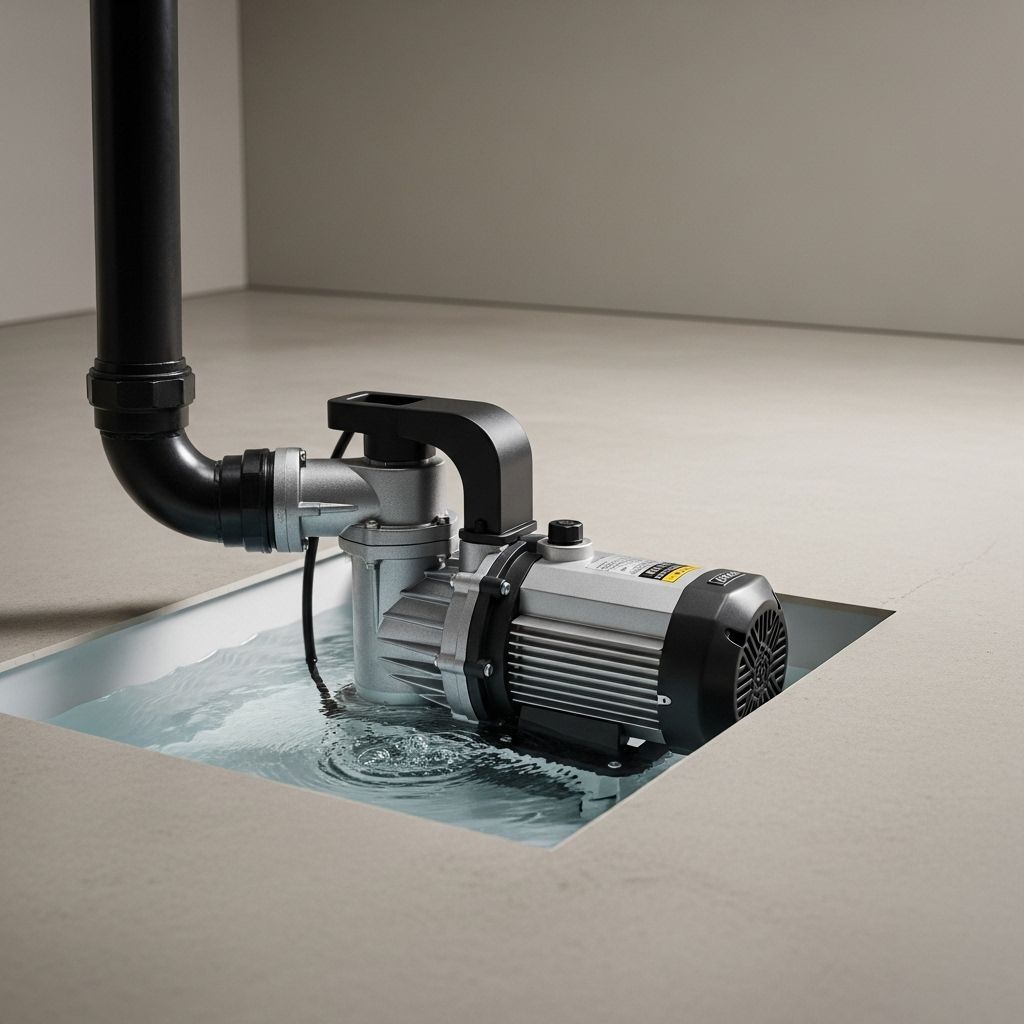What Is a Sump Pump? A Homeowner’s Comprehensive Guide
Maintain dry belowground conditions to safeguard integrity and avoid costly repairs.

Basement flooding is a nightmare for many homeowners, but there’s a proven solution to keep water out and maintain your home’s structural integrity: the sump pump. This guide explores what sump pumps are, how they work, their benefits, installation tips, and how to keep yours in top working condition.
Table of Contents
- What Is a Sump Pump?
- Why Are Sump Pumps Important?
- How Does a Sump Pump Work?
- Types of Sump Pumps
- Installation Considerations
- Maintenance Tips
- Benefits of Owning a Sump Pump
- Frequently Asked Questions (FAQs)
What Is a Sump Pump?
A sump pump is a small, automatic pump installed at the lowest point of your home’s basement or crawl space, designed to remove accumulated water from a sump pit and safely redirect it away from your home’s foundation. Its primary function is to prevent unwanted basement flooding and the resulting water damage, especially in areas prone to heavy rainfall, rising groundwater, or rapid snowmelt.
Sump Pit: The Heart of the System
The sump pump sits inside a specially constructed pit, usually 18 to 24 inches deep and roughly 18 inches wide. Water naturally flows or drains into this pit, triggered by either rising groundwater or surface intrusion during rain events.
Why Are Sump Pumps Important?
Sump pumps are more than just convenient—they’re an essential part of many homes’ flood prevention and water management plans. Here’s why:
- Prevent costly water damage. Swift removal of accumulating water prevents foundation, wall, and flooring damage in your basement or crawl space.
- Protect against mold and mildew. Basements and crawl spaces are vulnerable to high moisture, creating ideal conditions for mold. A dry environment created by a sump pump inhibits these health hazards.
- Preserve structural integrity. Ongoing or standing water can weaken foundational supports, leading to cracks and long-term instability. Sump pumps help avoid these risks.
- Increase property value. Homes with working sump pumps attract more buyers and often command higher sale prices, thanks to enhanced risk mitigation.
- Peace of mind. Even during intense storms or spring thaws, a properly functioning sump pump ensures you sleep easier, knowing your home is protected.
How Does a Sump Pump Work?
The operation of a sump pump relies on simple engineering paired with automated sensors:
- Water accumulates in the pit, either from groundwater infiltration or surface water seeping through basement walls and floors.
- A float switch or sensor activates when water rises to a designated level.
References
- https://acelobepump.com/blog/sump-pump-basics-what-you-need-to-know/
- https://absolutefix.com/uncategorized/the-importance-of-having-a-sump-pump-in-your-home/
- https://jenkinsrestorations.com/the-basics-and-the-benefits-of-a-sump-pump/
- https://rainbowrestores.com/blog/what-is-a-sump-pump
- https://www.freshwatersystems.com/blogs/blog/what-is-a-sump-pump-and-how-does-it-work
- https://www.youtube.com/watch?v=P8U7ufvUY-Y
- https://www.townofpoughkeepsie.com/368/Important-Sump-Pump-Information
Read full bio of medha deb










